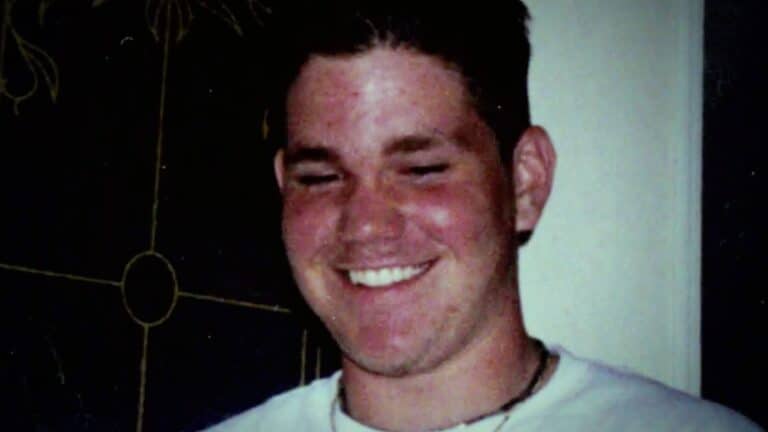DATELINE Cara Rintala retrial in Massachussets murder hinges on cold premeditation

The Dateline Cara Rintala retrial episode focuses on the Annamarie Cochrane murder, the first in Massachusets history in which a woman was convicted of her wife’s murder. The case became notable also because of the two separate retrials–in other words, three total trials, spanning nearly seven years–necessary to convict Cara Rintala, who married Annamarie Cochrane in 2007, after the two had dated for five years.
The basic facts of the case are these. On March 28, 2010, Annamarie, a paramedic known for wrapping homeless people in blankets and giving bagged lunches away to strangers in need, worked a 12-hour overnight. Cara, also a paramedic, was called in for an overtime shift on the morning of March 29, shortly after Annamarie returned home. When Cara finished her own shift, she realized that Annamarie needed more sleep, so–according to her alibi–she took Brianna, the couple’s four-year-old daughter, out for a long afternoon of errand-running.
By 7:12 that evening, Cara knocked on a neighbor’s door with her daughter and the family dog, said that Annamarie was dead in their basement, and told the neighbor to call 911. When paramedics arrived, they found Cara in the basement of she and Annamarie’s home, wailing, with her wife’s head in her lap and paint covering much of the body. She’d been strangled to death.

Cara Rintala with wife Annamarie. Screencap via Dateline NBC.
The investigation that resulted in Cara Rintala’s arrest quickly turned its focus to her because of numerous holes in her alibi. The medical examiner concluded that Annamarie died in the middle of the day on March 29th, which meant that, in the words of District Attorney Steven Gagne, there were “four hours in which no one [could] verify [Cara’s] whereabouts.” It turned out that those fours hours included throwing away blood-stained rags outside a nearby McDonald’s at 5:48 PM (surveillance cameras captured her in the act) and hacking at the door jamb of the home to “make it look like the house was broken into” (police later recovered the shovel, flecked with paint, inside the house).
Furthermore, the couple had a history of domestic abuse. In 2008, Annamarie requested a restraining order against her wife, claiming that Cara “struck her in the head with a spatula and her fist.” A year later, a 911 call from their home was cut off abruptly, in the middle of a woman’s scream; when police arrived, Annamarie and Cara said that Brianna had dialed the number accidentally. At an unspecified time, Cara even filed for divorce, though she withdrew the papers before the request could proceed.
Cara and Annmarie were also in the middle of financial trouble: between them, they had $68,000 in credit card debt. Given the couple’s tumultuous history and Cara’s flimsy alibi, prosecutors saw ample cause for a murder charge, and arrested her in October of 2011.
But her first trial, in which jurors were asked to consider charges of first- and second-degree murder, resulted in a mistrial when the jury failed to reach a unanimous verdict. And her second, in 2013, met the same fate. According to a Boston magazine feature on the case, “no one in the jury room argued that Cara was innocent, but six jurors felt that Gagne had failed to prove her guilt beyond a reasonable doubt instruction.” That number eventually dwindled to four, but would go no lower.
It was only with the second Cara Rintala retrial, in October of 2016, that prosecutors added the possibility of manslaughter. But the result was unexpected. The third jury simply ignored the possibility of manslaughter–and a lighter sentence–and instead, after four days of deliberation, concurred that Cara Rintala was guilty of murder in the first degree. Under Massachusetts law, a first-degree murder charge carries a mandatory sentence of life in prison.
Last December, Judge Mary Lou Rup, who presided over all three of Cara Rintala’s trials, denied her request for a reduced conviction. Judge Rup had the option to instead sentence Cara according to the guidelines for second-degree murder or manslaughter if she felt that the reduction would be “more consonant with justice.” But Rup, in denying the reduction, argued that the fact Annamarie was strangled to death “show[ed] that there was deliberate premedication,”
“At The Foot Of The Stairs,” the Dateline Cara Rintala retrial episode, airs tonight at 10 on NBC.
(Photo credits: Dateline Cara Rintala retrial via Massachusetts State Police, Dateline NBC)




